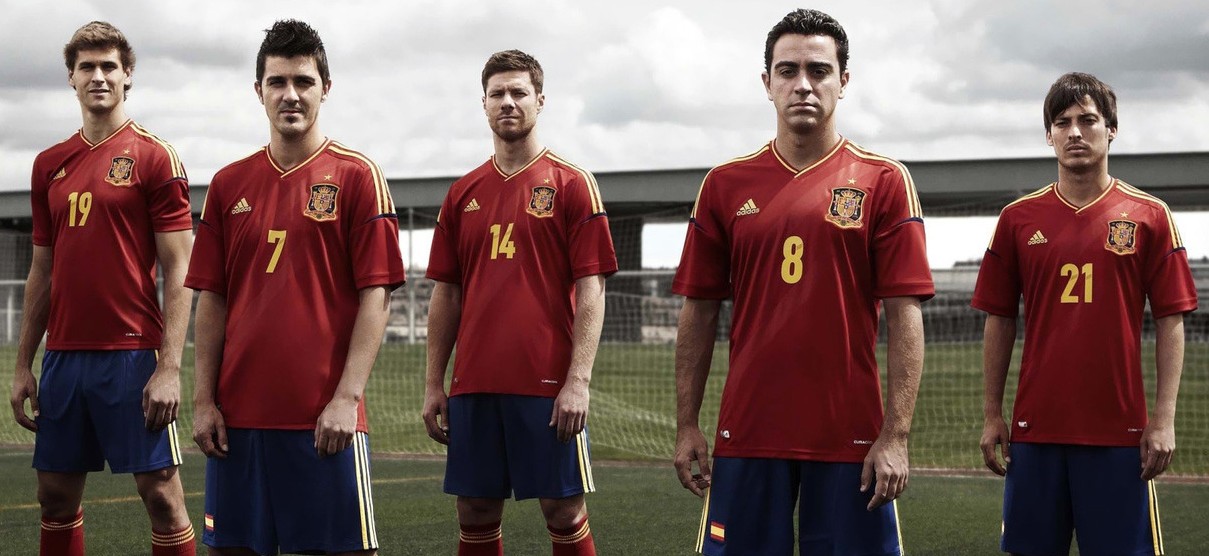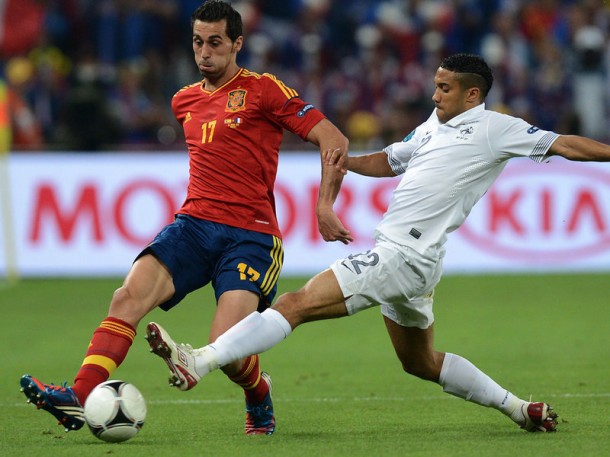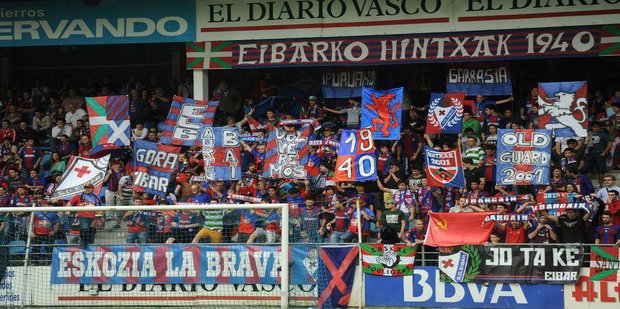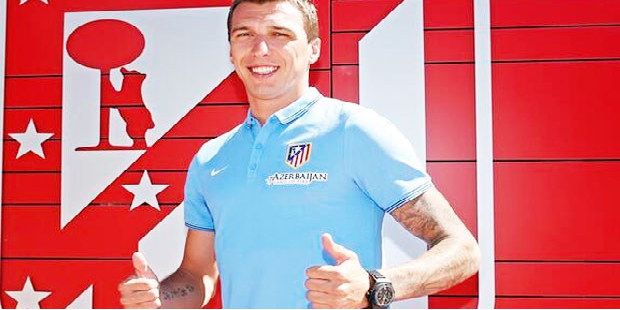- S.D. Eibar ready for maiden La Liga outing
- SD Eibar stengthen ahead of debut La Liga season
- Can ‘Super Mario’ live up to expectations in Madrid?
- MAN IN THE GROUND – Brentford 0 – 4 Osasuna
- Historic Basque derby welcomes S.D. Eibar to La Liga
- Munich to Madrid, via Brazil – Tony Kroos
- Rakitic in Spanish Switch
- Can Spain find redemption in Rio?
- Viva Espana! A season of redemption for Spanish football
- From the old to the new: who can fill the void in years to come for La Roja?
From Vienna to Kiev via Johannesburg – Spain on the Brink
- Updated: 1 July, 2012


Spain
Spain will line up with their normal 4-3-3 with the usual questions surrounding two positions; the striker and the right sided attacking berth.
And yet it seems so obvious that del Bosque will opt for Fabregas in the false 9 role to establish control. The thought of Pirlo controlling another game from deep must be anathema to the Spanish. Fabregas will, as we know by now, drop deeper than Torres and link with the midfield.
To combat the Italian numbers in midfield, Fabregas must start and drop deep to provide options. One of the successes of the Spanish game at this tournament as been the manner in which they press quickly to regain possession in a structured fashion. There will be no set instructions for someone to press Pirlo. Whoever is nearer from a fluid midfield must take responsibility and close him down. This could mean Fabregas if central or Iniesta and Silva when tucking in from the wings.
Silva continues to deliver and yet infuriate on the right wing. With one goal and three assists to his name, Silva has played a major role in Spain’s progress to date. Doubt lingers though over what he could be doing. The need for an extra touch sometimes when a simple, quicker pass would be the more profitable option. Del Bosque has removed Silva in each game thus far.
Alba and Arbeloa must advance for Spain. Italy are very narrow and whilst Spain are often accused of a similar failing, they have the ability to change and alter this via Navas and Pedro if need be. In the first instance though, the full backs must push high and stretch the narrow Italian midfield.

Andrea Pirlo
Judging by the reaction to the performance of Andrea Pirlo against England, you may be somewhat surprised to learn that Pirlo is in fact 33 years old with a long and distinguished career behind him which includes most major titles. Except that of European Champion.
The performance of Pirlo against England was often majestic as he glided around the center of the pitch with considerable ease, spraying the ball around and dictating the play. The clamour for him to be crowned player of the tournament has grown steadily aided by another performance infused with class against Germany.
If there is a player who can prevent Pirlo from collecting this individual award, he is lining up opposite Pirlo in the shirt of la furia roja, the man who calmly states that the ball is “my friend”; Andres Iniesta. The Spanish No8 remains one of the few players from la seleccionto have escaped criticism during this tournament. Possessing the ability to accept the ball under pressure and invite challenges before releasing it, Iniesta has provided Spain with a constant driving presence from the left thus far. From within the seemingly relentless passing of the Spanish midfield, Iniesta will break and surge forward and commit defenders creating space for team mates.
Although not in direct competition, the battle between the winners of the Man of the Match awards from the past two World Cup Finals, promises to be something special as they seek to shape and influence the game.
Enter the Pantheon
And so, we journey to Kiev.
A Spain win brings footballing history. Three successive international trophies, the first team to successfully defend their European Championship crown. Winning the trophy brings much more however. It cements Spain’s place in the pantheon of the greats, rightfully taking their place amongst the winners in the history of the game. The pantheon contains more than just winners however. For some teams are fondly recalled for the manner in which they played, their legacy cherished by all who were fortunate enough to glimpse these teams at their footballing peak as they defined an era irrespective of whether they won or not.
Spain will be spoken of alongside the free flowing Brazil of 1970, the total football of Cryuff and Holland in 1974 and 1978, Brazil in 1982 who remain arguably remain the greatest side never to win the World Cup, France in 1998 and 2000 guided by the genius of Zidane. And now Spain in 2008, 2010 and 2012.
This is the era of tiki-taka.
Spain are standing on the brink.
Follow @icentrocampista






You must be logged in to post a comment Login